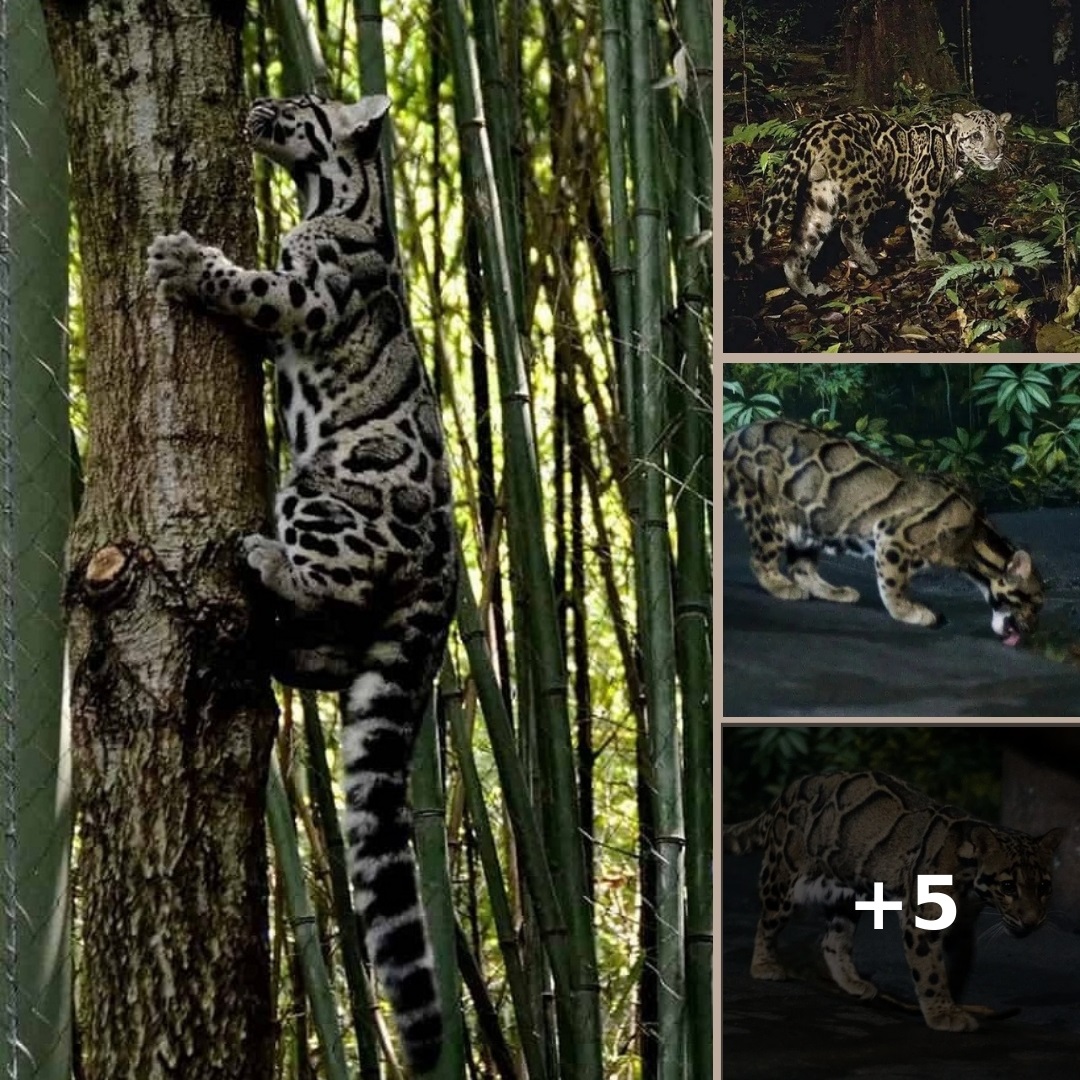With its rare and captivating presence, the clouded leopard draws the fascination of wildlife enthusiasts and researchers worldwide.
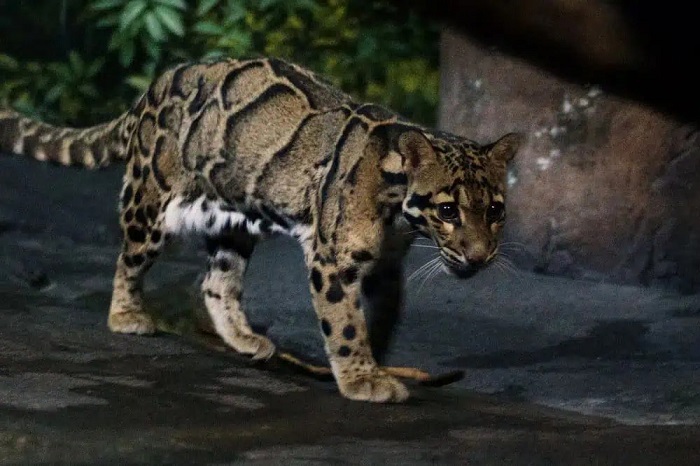
But it’s not just the animal that intrigues; it’s the extraordinary fur of this elusive feline that creates a mesmerizing three-dimensional illusion.
Named for its cloud-like spots, the clouded leopard has been classified as a separate genus, setting it apart from other leopards.
Genetic studies have confirmed its unique genetic makeup, adding to the allure of these magnificent creatures.
One of the most remarkable features of the clouded leopard is its fur, which functions both as camouflage and an optical marvel.
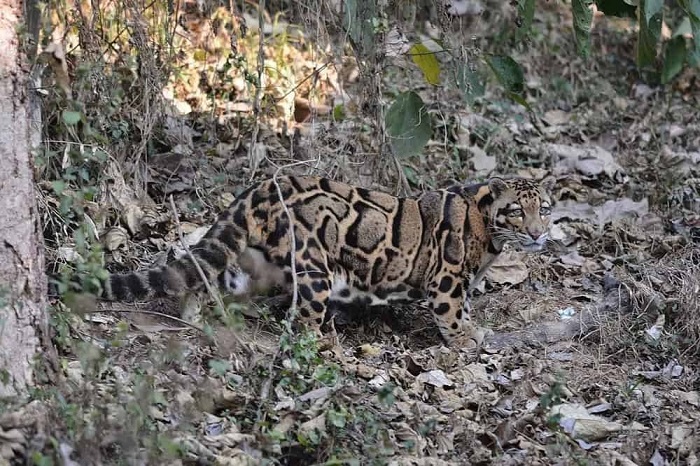
Viewed from the right angle, the spots on its coat create an illusion of depth, making the spots appear to pop out from its body.
This effect is achieved through the strategic arrangement and pattern of the spots, blending perfectly with the leopard’s surroundings and tricking the eye into seeing a three-dimensional structure.
This optical illusion not only enhances the leopard’s beauty but also aids in its ability to remain hidden in its natural habitat. The clouded leopard’s elusive nature is further heightened by its cautious behavior.
These cats actively avoid human contact, making sightings rare. Professor Liu Chiung-hsi from Taiwan’s National Taitung University highlights their wariness and talent for evading human detection.
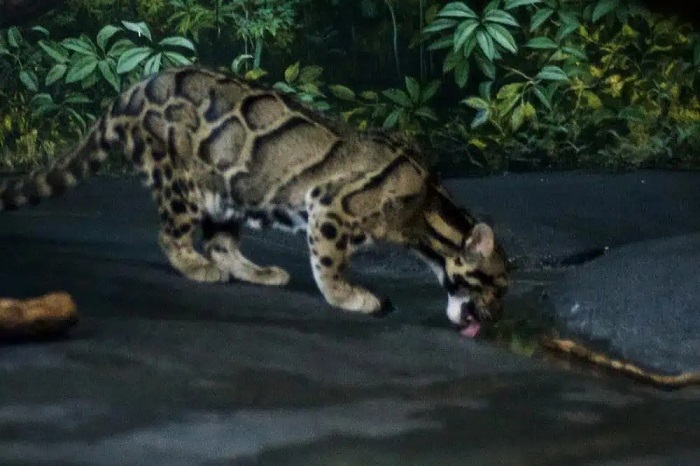
The discovery of a Formosan clouded leopard subspecies in Taiwan, previously thought to be extinct for over three decades, has sparked hope among conservationists.
This finding underscores the clouded leopard’s ability to remain hidden and emphasizes the need to preserve their habitat.
Despite being officially recognized as a distinct species for over two centuries, much about the clouded leopard remains unknown.
Most knowledge comes from observing them in captivity, as their population in the wild is alarmingly low, with fewer than 10,000 mature individuals spread across dense forests from the Himalayas to Southeast Asia and South China.
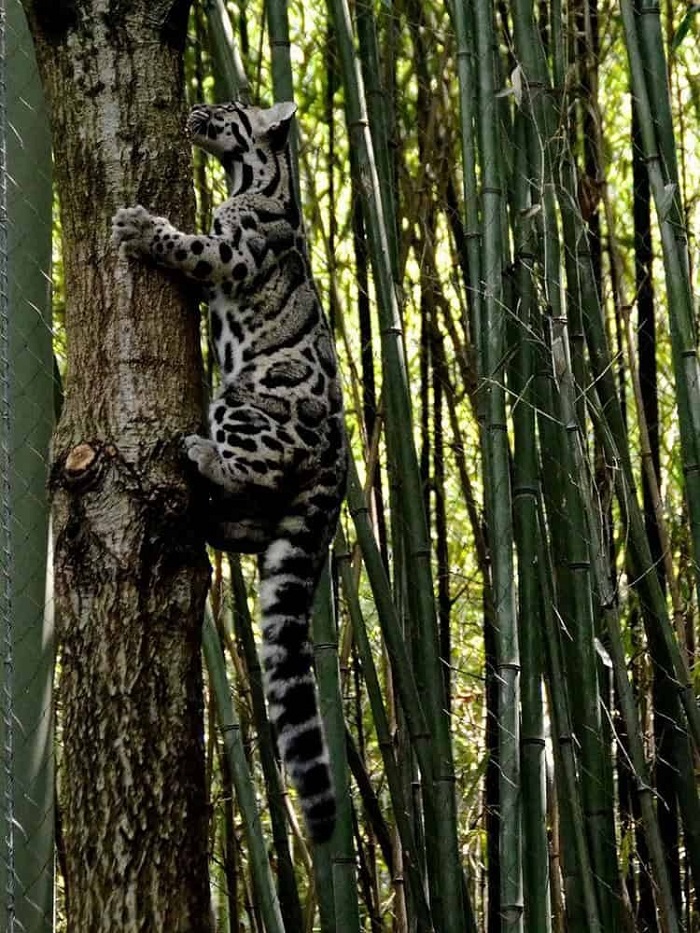
Adapted to arboreal life, clouded leopards exhibit exceptional climbing skills. Their rotating ankles allow them to climb headfirst down trees, showcasing their agility.
They also possess the largest canines in proportion to their skull among all cats, enabling them to hunt larger prey. These traits have earned them the nickname “Modern-day saber-tooth tiger.”
In addition to their climbing prowess, clouded leopards have a distinctive build, larger than small cats but smaller than big cats.
Their vocalizations range from purring and growling to soft shuffles, hissing, and even meowing, reflecting their diverse communication methods.
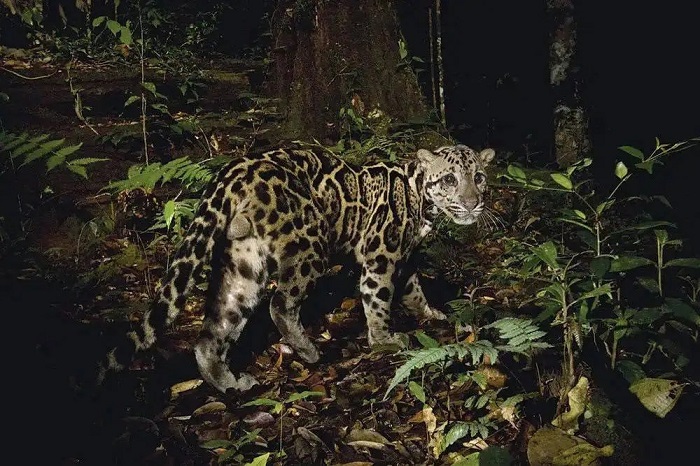
From birth, clouded leopard cubs display unique characteristics. Their eyes retain an oblong shape instead of rounding out or forming vertical slits.
Their tail, the longest in relation to body size among all cats, provides exceptional balance as they navigate tree branches.
The clouded leopard’s extraordinary fur creates a fascinating 3D illusion, mystifying an enigmatic creature.
Each sighting reminds us of nature’s precious beauty and the importance of protecting these rare and captivating leopards for future generations.
